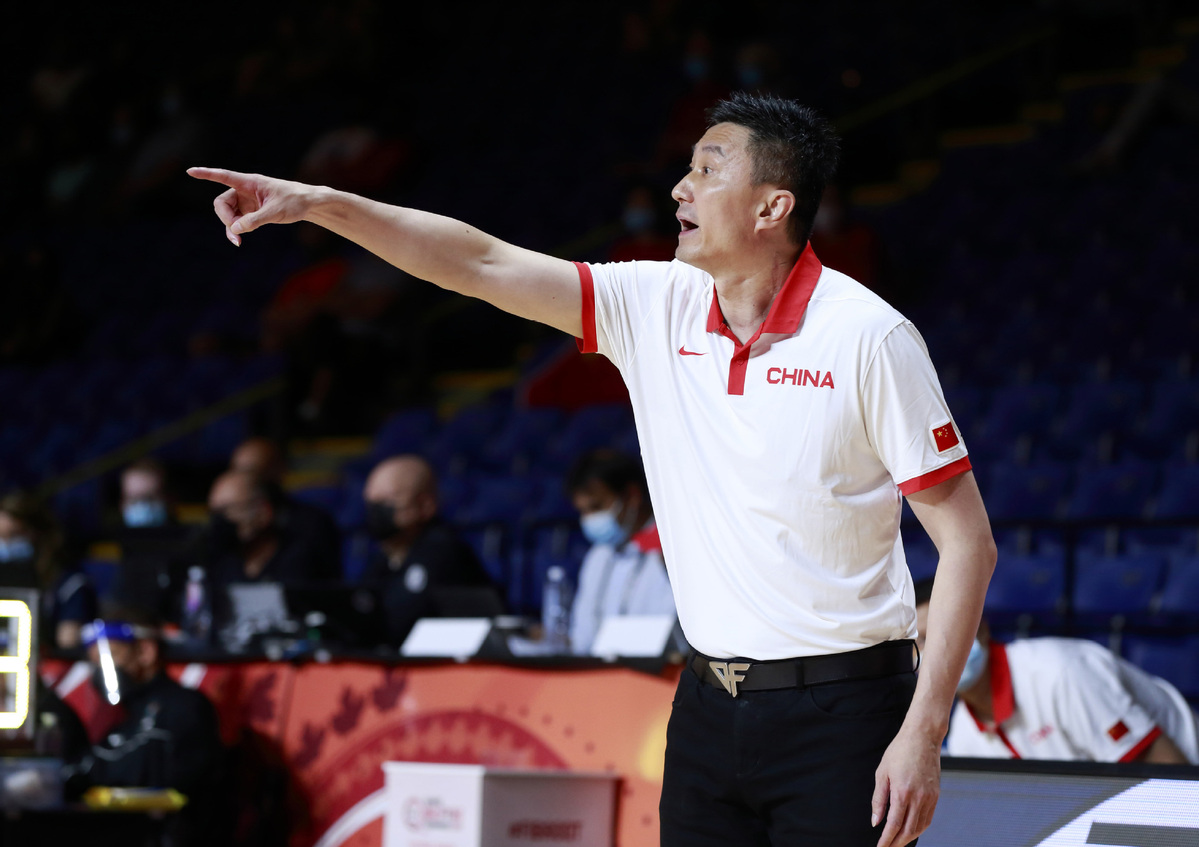Du's youthful squad tips off new era
 0 Comment(s)
0 Comment(s) Print
Print E-mail China Daily, November 18, 2021
E-mail China Daily, November 18, 2021

With the disappointment of missing out on this year's Olympics still lingering, China's national men's basketball team will begin its rebuilding process in the forthcoming FIBA World Cup qualifying campaign.
Preparations for back-to-back games against Japan began this week, with head coach Du Feng looking to the future with a youthful 16-man squad.
With some veterans still not 100 percent fit after recovering from injuries, Du's training camp roster features a group of young talents who have proven themselves through 13 rounds of the Chinese Basketball Association league this season and are now hungry to impress on the international stage.
A double-header against Japan (Nov 27 and 28) provides an ideal opportunity to assess the young guns.
"We picked the players based on our coaching team's evaluation of their performances in the league and their physical condition at the moment, as well as their strengths in relation to Japan's style of play," Du said in a video message to announce the roster.
"I expect them to cherish every moment representing the country and hope they can demonstrate the new image of Chinese basketball and follow in the footsteps of their predecessors," added Du, a formidable member of China's quarterfinal team at the 2008 Beijing Olympics.
Defending CBA champion the Guangdong Southern Tigers and last year's runner-up the Liaoning Leopards each account for four players in Du's squad, which is training in Ningbo, Zhejiang province.
Of all the new breed, perhaps the highest hopes are pinned on Guangdong playmaker Xu Jie, Liaoning's explosive forward Zhang Zhenlin and Xinjiang Flying Tigers sharp shooter Qi Lin, all born after 1999.
Long-time national team backbone Yi Jianlian of Guangdong and two-time CBA league MVP Ding Yanyuhang are among the high-profile players dropped by Du this time as they manage their returns from nagging injuries.
In their absence, leadership responsibilities will fall to Liaoning guard Guo Ailun, Xinjiang's league-leading scorer Abdusalam Abdurexit and former NBA center Zhou Qi, who has joined Australian club South East Melbourne Phoenix this season.
"The international window for the World Cup qualifiers cuts our league into several phases and it takes a physical toll on our players, who have to adjust quickly from their club roles to national duty," said Du.
"Injuries have always been part of the game so we need to pick the healthiest players among the best in the league and get them ready for the international battle within a week."
Coached by Du's former national teammate Li Nan, Team China finished a worst-ever 24th in the previous edition of the World Cup in 2019, thereby failing to secure Asia's only direct berth to the Tokyo Olympics.
The national program, overseen by CBA president Yao Ming, cannot afford to mess up again by missing out on qualification for the 2024 Paris Games, which is based on results in the Cup tournament.
Eight out of 32 World Cup berths are allocated to teams from the Asia-Oceania region with two automatically granted to co-hosts Japan and the Philippines, who still have to compete in all qualifiers. The other co-host of the marquee FIBA tournament, Indonesia, will have to fight for qualification to the tournament due to its low ranking.
Drawn with Japan, Australia and Chinese Taipei in Group B of the 16-team first phase of qualifying, Du's team has to finish in the top three to advance to the second round.
The 12 teams will then be divided into two groups, where they will face each other in another home-and-away round-robin format through early 2023 to decide the best six teams. The top three from each group will qualify for the World Cup.
The 2023 FIBA World Cup will be staged in Indonesia, Japan and the Philippines from Aug 25-Sept 10, the first time it will be hosted by multiple countries.






Go to Forum >>0 Comment(s)